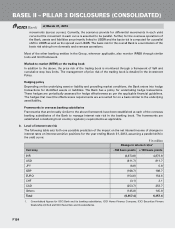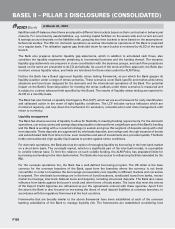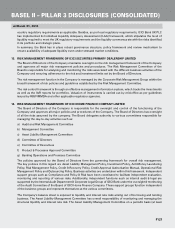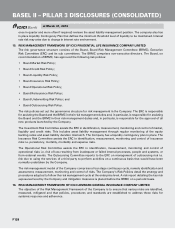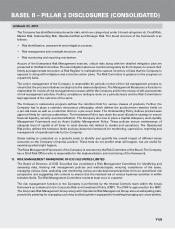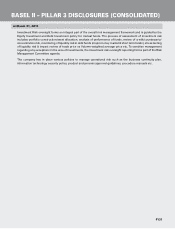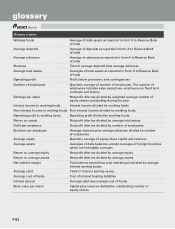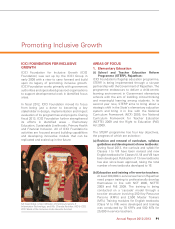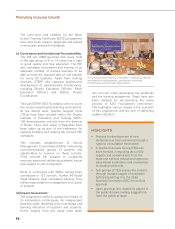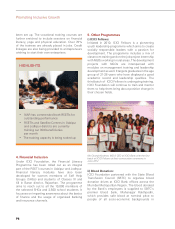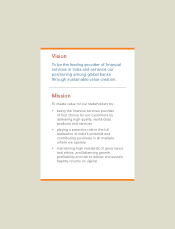ICICI Bank 2013 Annual Report Download - page 212
Download and view the complete annual report
Please find page 212 of the 2013 ICICI Bank annual report below. You can navigate through the pages in the report by either clicking on the pages listed below, or by using the keyword search tool below to find specific information within the annual report.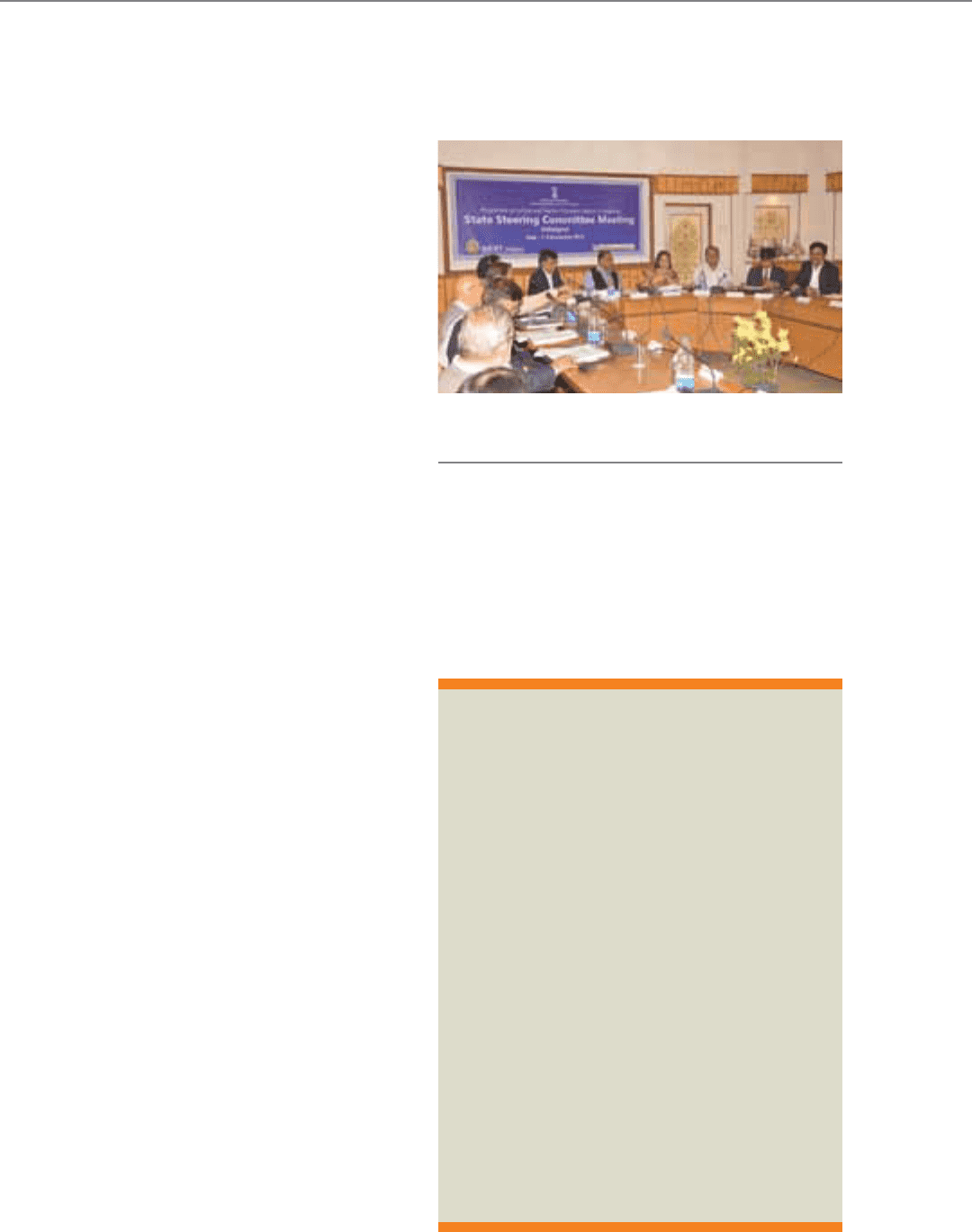
P2
Promoting Inclusive Growth
into account while developing the textbooks
and the training programme. Steps have also
been initiated for documenting the entire
process of ICICI Foundation’s intervention.
This highlights various stages in the evolution
of this programme with the aim of delivering
quality education.
The curriculum and syllabus for the Basic
School Training Certificate (BSTC) programme
have also been revised, approved and placed
in the public domain for feedback.
(c) Governance and Institutional Accountability:
The RtE Act 2009 specifies that every child
in the age group of 6 to 14 years has a right
to good quality and free education. The RtE
also mandates recruitment and training of an
adequate number of trained teachers to be
able to meet the required ratio of one teacher
for every 30 students. Apart from training
teachers, STERP also supports professional
development of administrative functionaries,
including District Education Officers, Block
Education Officers and District Project
Coordinators.
Through STERP, ICICI Foundation aims to cover
the issues impacting the learning environment.
At the district level, Teacher Support Units
(TSUs) have been created within the District
Institute of Education and Training (DIET).
150 demonstration schools from the districts
of Baran, Churu and Jaipur in Rajasthan have
been taken up as part of the endeavour for
capacity building and making the schools RtE
compliant.
This includes establishment of School
Management Committees (SMCs) comprising
community-based groups of parents and
stakeholders to oversee on these schools.
TSUs provide full support to on-ground
resource personnel delivering academic inputs
and support to school teachers.
Work is continuing with SMCs having been
constituted in 127 schools. Further, 40 Nodal
Head Masters have completed training. They
will be responsible for management of a cluster
of schools.
(d) Impact Assessment:
The programme seeks to assess the impact of
its intervention continuously. An independent
baseline study identified poor knowledge and
learning indicators of teachers and students.
Some insights from this study were taken
Promoting Inclusive Growth
A meeting of State Steering Committee, comprising national
and state-level educationists, government education
functionaries and specialist organisations
HIGHLIGHTS
• Processfordevelopmentofnew
textbooks has been achieved through a
national consultative mechanism
• ATeacherEducatorGroup(TEG)has
been formed, comprising about 500
experts and academicians from the
state and national educational agencies,
educational institutions and universities
to develop textbooks
• Sub-groupsofTEGassessthecontent
through multiple stages of evaluation
before presenting it to the State
Steering Committee (SSC) for its final
approval
• Uponapproval,thematerialisplacedin
the public domain inviting suggestions
from the public at large


